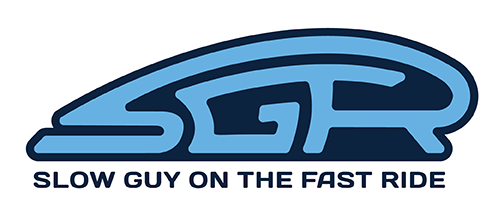Japanese cyclist Eri Yonamine is looking forward to racing in 2023 after being sidelined for the better part of 2022 to recover from major surgery.
Yonamine, 31, rides for the US-based team Human Powered Health, which competes in Europe. Human Powered Health is a “continental level” team, which is akin to a Triple A baseball team.
In 2021, after months of experiencing pain and weakness in her leg, Yonamine was diagnosed with a blockage in her iliac artery, which travels from the heart to the leg. Iiliac artery endofibrosis is uncommon but, when diagnosed, found more frequently in cyclists and triathletes.
A doctor in the Netherlands made the diagnosis, but wouldn’t perform the major abdominal surgery to repair the artery. She found a doctor in Italy who would operate and, after a long recovery, she was back to racing late last year. Yonamine posted a photo of her scar on the team’s website.
This interview was conducted over email and has been lightly edited for clarity. Yonamine said she was more comfortable writing in English.
Yonamine excels on social media where she has an impressive following. She uses both English and Japanese, mixed with the right emojis and photos, to write clever and funny tweets and Instagram posts. They provide a glimpse into the day in the life of a professional cyclist in Europe.

Her life, her choice
By any measure, Yonamine is an accomplished cyclist. She finished in 21st place at the Toyko Olympics road race. She’s won Japan’s individual time trial championship six times and she’s won the road race championship five times. She finished in second place last year.
“She is very important for the team because of her experience and she can read the race well,” said Kenny Latomme, the performance manager for Human Powered Health’s women’s team. “The young riders can learn from her how to save energy and use it for the correct moment in the race.”
Like many riders from countries without a major presence on the WorldTour, making the leap to Europe from racing in Japan and the United States was not easy. Not only was the racing more difficult but she had to navigate the lengthy, bureaucratic process of getting a visa.
Yonamine now resides in Spain.
Despite the difficult surgery and recovery, as well as the sheer effort it takes to race in Europe, Yonamine has no regrets about the path she has chosen.
“People might think I have to make many sacrifices as pro cyclist, but it’s absolutely my choice to live this life,” she said. “No family, no partner, a lot of travel, strict training regimen, no weekend parties—even though I am not interested. At the moment, I don’t feel I’m making any sacrifices though,” she said.
“It’s my life and I chose it myself. It was nobody else’s choice,” she added. “Being a professional cyclist is what I want to be.”

Yonamine’s prep for 2023
In December and over the Christmas holidays, Yonamine had been riding 25 hours a week. She typically rides with her coach, a former mountain bike champion in Japan, who will ride along with her on an electric bike.
In mid-January, she attended Human Powered Health’s week-long training camp in Portugal. The team put in long endurance rides, worked with the mechanics to make sure their bikes fit properly, and, did some high intensity efforts to measure their fitness levels.
On the camp’s final day, the team held an intramural race in which teams of three riders were given a 15-second head start in front of a second, larger group of riders. The race covered about 20 kilometers.
“It’s quite fun and short, hard effort. Personally, the circuit is more for sprinters, but I could just hang on,” said Yonamine, who specializes in climbing hills and mountains.
“Yonamine is one of the key riders when [the race goes] uphill,” Latomme said.
Food and Weight
Many of Yonamine’s social media posts are of her riding her bike on sunny days, drinking coffees and cappuccinos, or eating food.
She said that the toughest place for her to find balance — as for many professional cyclists — is with food.
At the professional level, one’s power to weight ratio is everything (this is measured as watts per kilogram). So gaining a kilogram or two (2.2 to 4.4lbs), especially for someone who excels at climbing mountain roads, can make an enormous difference.
Yonamine’s path to achieve balance
In all caps, Yonamine wrote, “First of all, I LOVE TO EAT FOOD… and, yes, I’m a climber so weight is key to my performance. Even an extra one kilogram can feel like a big difference for me on the bike.”
Her rule when it comes to eating, though, is to focus on nutritional value and taste. How much she eats depends on how much she burns during the day. While she’s disciplined about how much she might eat, she draws a line at weighing her food because it is too “robotic.”
Over the course of a 10 month-long season, she tries to be flexible when it comes to food so as not to burnout both physically and emotionally.
“Good food makes me happy as a cyclist and as a person,” she wrote. “Racing in Europe is my life’s work at the moment. I want to be happy doing this for as long as possible.”


